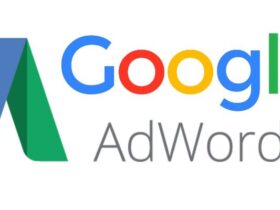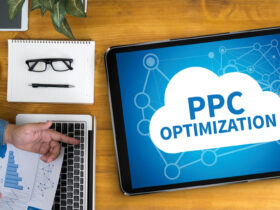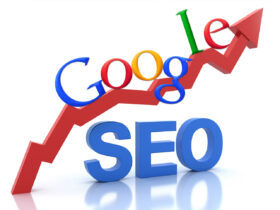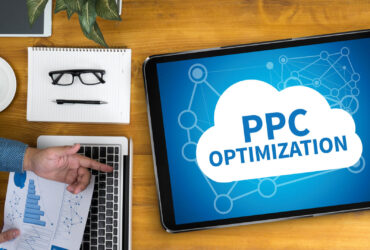PPC (Pay Per Click) is a sort of online advertising that requires advertisers to pay each time a user clicks on one of their online commercials. The most common kind of PPC advertising is the paid seek advert. These advertisements appear when human beings use a search engine like Google to conduct commercial searches, which means they are particularly seeking something to shop for. The following details what PPC is, how it works, and the steps you could take to get your PPC campaign up and going for walks nowadays.
What is PPC?
PPC (Pay Per Click) advertising and marketing approach, in which the advertiser pays a rate to the search engine, showing it whenever a consumer clicks on the PPC advert. Make a purchase; the ad’s commercial enterprise will be charged for this ‘click’ through’ method. Sometimes known as Cost Per Click (CPC), PPC comes in a spread of bureaucracy – the maximum not unusual is that paid to seek advert. Paid search advertising affords clients ads that the search engine operator deems most relevant to their search. The right advert will generate a variety of interest, encouraging clients to click on-through and make a purchase with a bit of luck.

For instance, someone trying to find ‘beachwear’ will’ see adverts for bikinis and flip flops – in place of bobbleheads and ski goggles – because the search engine has already filtered out the content relevant to their search. But it’s stronger only if you “throw” money at it, and the advert will appear” – o” no. Search engines are nifty and could vicinity adverts into what is called Action. Go’gle utilizes this rather exciting-sounding method, along with other search engine operators, to determine the relevance of commercials and routinely assesses an adveradvert’sicability when it comes to the patropatron’sentic seek. If, after the Ad Auction, an ad is deemed ‘relevant’ through the hunt engine, then it will appear inside the SERP (Search Engine Results Page).
How do the Ad Auction paintings?
You may also not be amazed to hear that there are bidding concerns. Not within the ‘flog, ‘ it experiences the whole block, gavel, and auctioneer, but digitally. Advertisers will bid on keywords they want to spark off the show in their advert. Keywords shouldn’t be addressed with seeking queries: the keyword links to the advertised product, whereas the quest query is what the consumer puts into Google. For instance, if a patron types the search question ‘pizz’ close to me’ int’ Google, the keyword here is pizza. Therefore, Google will show advertisements for local pizza shops (because the query became ‘close’ to me,’ displaying nearby rationale).
The auction is computerized and runs off a fixed set of predetermined metrics, deliberating your finances, target market, and the keywords you’ve been determined to bid on. Those key phrases need to apply to your product and be seek-engine friendly. Check this listing if you’re looking for a few beneficial gears to perform your keyword studies.
The biddebidder’s, called the Ad Rank, is determined by combining the PPC bid and the best rating of the advert itself. Low exceptional advertisements are not looked at favorably, so the winner isn’t necessarily the best bidder. Now, if your ad has won the bid – and is judged to be a suitable match with the search reason of the client – your PPC advert will seem at the pinnacle of the search page. If the consumer clicks on your advert, you’ll pay a rate based on how much you bid on that keyword.
What is Google AdWords PPC?
The most famous form of PPC advertising and marketing, Google Ads (previously referred to as Google AdWords), is a platform that allows groups to create advertisements that seem to rank on Google.
Google Ads operates on a Pay-Per-Click version. Every time a search term is entered into Google, Google dips into its financial institution of commercials relevant to that seek and selects some to appear inside the advert space on its search effects page.
This selection manner is primarily based on the following:
- The relevance of the adveradvertiser’sen key phrases
- The peasant of the ad itself
- The size of the keyword bid
- These elements integrate to shape the bank (calculated by multiplying the PPC bid and rate rating).
- The Ad Rank is designed to keep advertisers within their budgets because the device operates on a pay-per-click basis. This allows the prevailing advert to reach the right purchaser at a value that fits their price range.
But how much will it cost?
Google permits you to set a monthly financial cap, and there’s a minimum spend! That’s completely dependent on how much you want to spend. In Google’s words, “you “will pay more than the month-to-month cap you put. “Google will come up with recommendations primarily based on how much other agencies like yours spend on their PPC advertisements and the expected outcomes.
It takes around a month to begin seeing consequences from a Google Ad, so therethere’seed to panic. If you do experience not getting the preferred ROI, you can readjust your budget at any time without strings attached. What you choose to spend will rely upon the fee of the keywords themselves, in addition to your personal price range. But we can provide you the sensible words of James Munro, PPC advertising expert at virtual advertising enterprise MVF: “A bi” has to continually be what a click on is well worth to you.”











